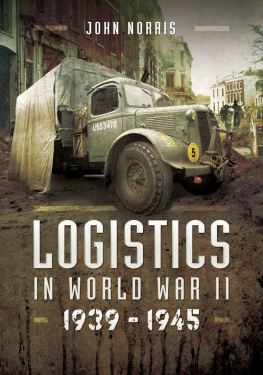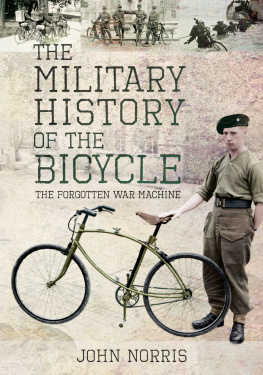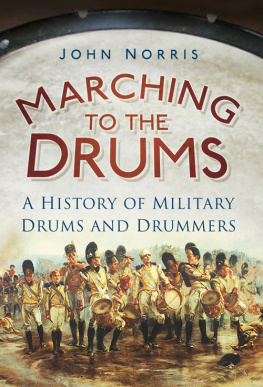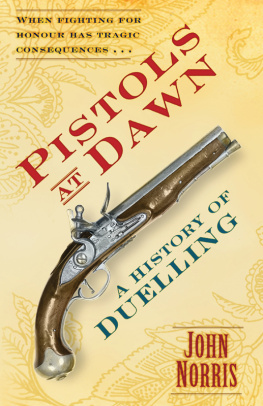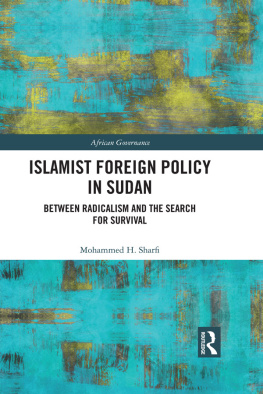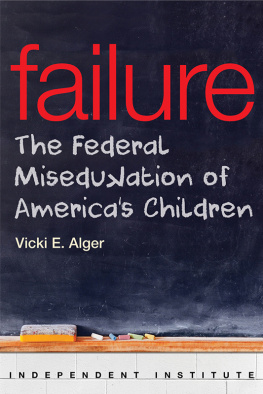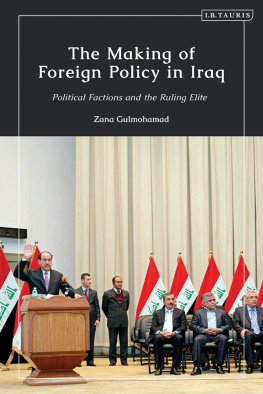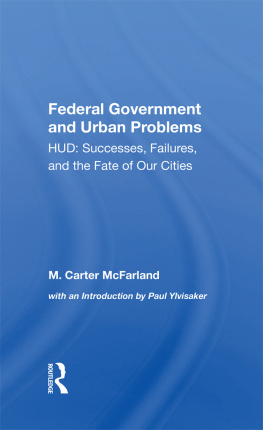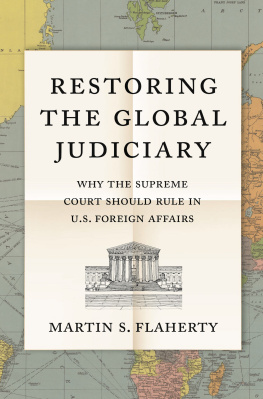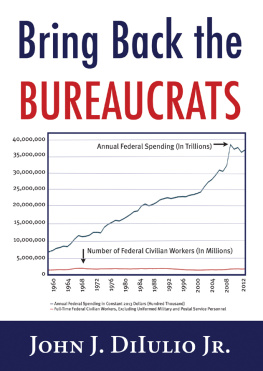John Norris worked at AID during the 1990s both as a speechwriter and field disaster specialist. Since that time, he has served in a variety of senior roles at the State Department, United Nations, and nonprofits. Norris resides with his family on Bainbridge Island outside of Seattle, and he currently works at the Bill and Melinda Gates Foundationalthough the views expressed here are entirely his own.
First, I want to acknowledge the innumerable contributions made by all the people at AID, past and present, who go about their jobs often under the most demanding conditions, and usually with little fanfare. Their talent and dedication have made the world a better place.
I owe thanks to many for their help and insight along the journey that was writing this book.
My family has been incredibly supportive of my work, even through the seemingly endless travails of 2020. Brenda, my wife, remains my best and truest muse and guide.
Carolyn Kenney was a fantastic research assistant and thought partner throughout and marched with good spirits through an incredible volume of material, covering more than six decades.
I also want to thank the many people who reviewed the text, including a handful of former AID administrators, who saved me from any number of self-inflicted blunders. Thanks also to Charles Kenny, a good friend and a fine author, who helped bring better focus to these pages, as did Curt Tarnoff and Larry Nowels, both formerly of the Congressional Research Service.
I want to express particular gratitude to the USAID Alumni Association for their support. Alexander Shakow, Carol Peasley, James Michel, Dan Runde, and the late John Sanbrailo all provided incredibly useful feedback, and they could not have been more gracious along the way. In addition, the alumni association helped underwrite my research effortsalthough the words and opinions expressed here are solely my own.
I also appreciate the help and support from my terrific agent, Gail Ross, and the whole team at Rowman, particularly Jon Sisk, who first reviewed my manuscript. And lastly, I would like to thank you, the reader. I always welcome your feedback, criticism, and inquiries.
Acemoglu, Daron, and James Robinson. Why Nations Fail: The Origins of Power, Prosperity, and Power. New York: Crown Business, 2012.
Albright, Madeleine, with Bill Woodward. Madam Secretary. New York: Miramax Books, 2003.
Baker, Peter, Days of Fire: Bush and Cheney in the White House New York: Doubleday, 2013.
Ballantyne, Janet C., and Maureen Dugan, eds. Fifty Years in AID: Stories from the Front Lines. Arlington, VA: Arlington Hall Press, September 2012.
Banerjee, Abhijit, and Esther Duflo. Poor Economics: A Radical Rethinking of the Way to Fight Global Poverty. Washington, DC: Public Affairs, 2011.
Barnett, Robert W. Population: Policy and Program, March 25, 1966, College of Physicians and Surgeons at Columbia University, LBJ Presidential Library.
Bass, Gary J. The Blood Telegram: Nixon, Kissinger, and a Forgotten Genocide. New York: Alfred Knopf, 2013.
Behrman, Greg. The Most Noble Adventure: The Marshall Plan and the Time When America Helped Save Europe. New York: Simon & Schuster, 2007.
Berg, Alan. AIDs Nutrition History (The Early Years). Unpublished paper written to contribute to Nourishing Lives and Building the Future: The History of Nutrition at USAID, June 2019.
Butterfield, Samuel Hale. US Development AidAn Historic First: Achievements and Failures in the Twentieth Century. Westport, CT: Praeger, 2004.
Cannon, Lou. President Reagan: The Role of a Lifetime. New York: Public Affairs, 1991.
Carothers, Thomas, and Diane de Gramont. Development Aid Confronts Politics: The Almost Revolution. Washington, DC: Carnegie Endowment for International Peace, 2013.
Cassen, Robert. Does Aid Work? Oxford: Clarendon Press, 1994.
Clay, L. D. The Scope and Distribution of US Military and Economic Assistance Programs. Washington, DC: US Department of State, 1963.
Clinton, Bill. My Life. New York: Vintage Books, 2005.
Clinton, Hillary. Hard Choices. New York: Simon & Schuster, 2014.
Conway, Gordon. One Billion Hungry: Can We Feed the World? Ithaca, NY: Cornell University Press, 2012.
Crosswell, Michael J. The Development Record and the Effectiveness of Foreign Aid, US Agency for International Development, Staff Discussion Paper No. 1, June 1998.
Dallek, Robert. An Unfinished Life: John F. Kennedy, 19171963. New York: Back Bay Books, 2003.
Donovan, Robert J. The Second Victory: The Marshall Plan and the Postwar Revival of Europe. Lanham, MD: Madison Books, 1987.
Easterly, William. The White Mans Burden: Why the Wests Efforts to Aid the Rest Have Done So Much Ill and So Little Good. New York: The Penguin Group, 2007.
Eizenstat, Stuart E. President Carter: The White House Years. New York: St. Martins Press, 2018.
Ermarth, Fritz. The Soviet Union in the Third World: Purpose in Search of Power. Santa Monica, CA: Rand Corp, 1969.
Farrell, John A. Richard Nixon: The Life. New York: Random House, 2017.
Fisher, Paul. A Short History of the US Aid Program: The Development of Key Aid Concepts. Washington, DC: Agency for International Development, 1963.
Fox, James. Applying the Comprehensive Development Framework to AID Experiences. Washington, DC: World Bank, 2000.
Goodman, Jimmy. Happy Birthday, Herbert Hoover: The Lost Legacy of a Hated President, The Atlantic, August 10, 2011.
Hagen, James M., and Vernon W. Ruttan. Development Policy Under Eisenhower and Kennedy. Minneapolis: University of Minnesota, Economic Development Center, 1987.
Harris, John F. The Survivor: Bill Clinton in the White House. New York: Random House, 2005.
Himelfarb, Tanya. 50 Years of Global Health: Saving Lives and Building Futures. Washington, DC: US Agency for International Development, June 2014.
Hyman, Gerald F. Foreign Policy and Development: Structure, Process, Policy, and the Drip-by-Drip Erosion of AID. Washington, DC: The Center for Strategic and International Studies, September 2010.
Jacobs, Seth. Cold War Mandarin: Ngo Dinh Diem and the Origins of Americas War in Vietnam, 19501963. Lanham, MD: Rowman & Littlefield, 2006.
Krueger, Anne O. Economic Policies at Cross-Purposes, The Brookings Institution, 1993.
Krueger, Anne O., and Vernon W. Ruttan. The Development Impact of Economic Assistance to LDCs, Volume 1, Prepared for the Agency for International Development and the Department of State, 1983.
Kumar, Raj. The Business of Changing the World: How Billionaires, the Disrupters, and Social Entrepreneurs Are Transforming the Global Aid Industry. Boston: Beacon Press, 2019.
Lancaster, Carol. Foreign Aid: Diplomacy, Development, Domestic Politics. Chicago: University of Chicago Press, 2007.
Lederer, William J., and Eugene Burdick. The Ugly American. Greenwich, CT: Crest Giant, 1960.
Leuchtenburg, William E. Herbert Hoover: The American Presidents Series: The 31st President, 19291933. New York: Henry Holt & Company, 2009.
Levinson, Jerome, and Juan de Onis. The Alliance that Lost Its Way. Chicago: Quadrangle Books, 1970.
Lewis, John P. Reviving American Aid to India: Motivation, Scale, Uses, Constraints, in India: A Rising Middle Power, ed. John W. Mellor. Boulder, CO: Westview Press, 1979.
. Indias Political Economy. Oxford: Oxford University Press, 1997.
Lyman, Princeton. Building a Political-Economic Approach to Development, American Political Science Association, 1970.


